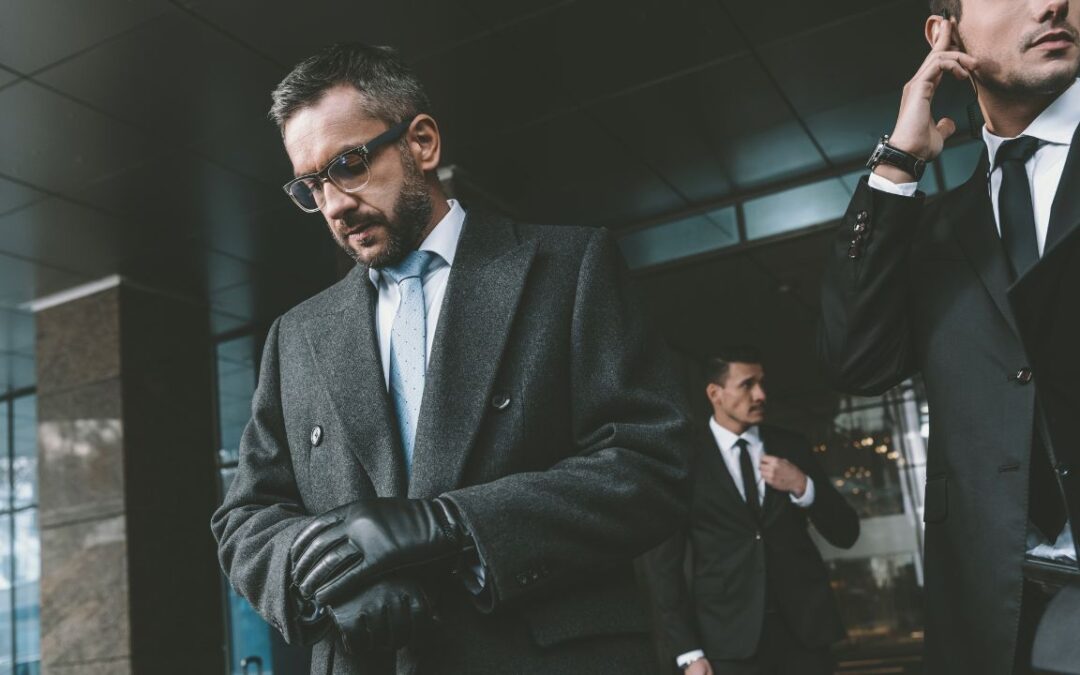As a CEO or high-profile individual, your security is paramount, especially when traveling abroad. The risks associated with international travel have become more complex, requiring a tailored approach that combines executive protection, advanced technologies, and proactive planning. Whether you’re flying across the globe for a business deal or attending a private event, maintaining your safety and privacy is critical.
In this blog, we will explore travel security tips for executives, focusing on everything from estate security to digital protection and crisis management strategies. By adopting a holistic approach to executive personal protection for high-net-worth individuals, you can be sure about your safety while traveling and still preserve your lifestyle without disruption.
Pre-Trip Security Planning
The foundation of any effective travel security plan is preparation. Before embarking on a trip, conduct a thorough risk assessment to evaluate the potential threats at your destination. This includes identifying political stability, local crime levels, and any specific risks related to your personal or professional profile.
A detailed pre-traveling security consultation is essential. Working with executive protection companies, security consultants will conduct intelligence gathering, liaise with local law enforcement, and prepare a security brief that helps identify vulnerable areas. This proactive planning should also include:
- Identifying high-risk areas: Avoid neighborhoods with a history of crime or political instability.
- Planning alternative routes: Avoid predictable routes and consider secure transportation options.
- Securing accommodations: Ensure your hotel or residence has enhanced security features, such as surveillance and restricted access points.
The Role of Executive Protection
One of the most important aspects of travel security for executives is having a professional protection team. An experienced executive protection team can provide both overt and covert protection, depending on the situation.
These security experts will act as your first line of defense, ensuring that you are safe from potential threats while traveling. Their duties include:
- Secure transportation: Traveling in armored vehicles or private jets that are specifically vetted for security risks.
- On-site protection: Professional agents trained in personal security and defensive driving who ensure your safety throughout your trip.
- Advance work: Security teams often conduct advance checks at your travel destinations to assess any vulnerabilities and prepare countermeasures.
In addition, personal security agents should be equipped with the latest technology, from encrypted communication devices to GPS tracking systems, ensuring that you can be located at all times in case of emergency.
Digital Security: Safeguarding Your Digital Footprint
With the increasing threat of cyberattacks, securing your digital footprint has become just as critical as your physical safety. For high-net-worth individuals, a breach of personal or business data can have devastating consequences.
To mitigate risks, consider these essential steps:
- Encrypted communication: Use secure channels for all business and personal communication while traveling. Tools such as one-time pad encryption and virtual private networks (VPNs) can ensure your messages are protected from eavesdropping.
- Traveling with secure devices: Always use secure laptops and mobile devices, with biometric locks and advanced antivirus protection. Avoid using public Wi-Fi for sensitive communications.
- Digital surveillance: Your executive protection team should monitor social media platforms and digital footprints to identify any potential threats or attempts at gathering personal information.
Estate Security: Keeping Your Property Safe
While you are away, protecting your estate is just as important as protecting yourself. Implementing estate security measures ensures that your home, family, and personal belongings are safe from potential intruders or criminal activity.
Key components of estate security services include:
- 24/7 surveillance: Set up remote security cameras that are monitored in real-time by your protection team, ensuring you can be alerted to suspicious activity at any time.
- Access control: Restrict access to your property using smart locks, fences, gates, and other barriers that limit entry to only authorized individuals.
- On-site security: Consider hiring a security detail to patrol your property while you are away, ensuring your home is fully secured.
Emergency Preparedness: Responding to Crises
In today’s unpredictable world, emergencies can arise at any moment. Being prepared for various scenarios—whether it’s a medical emergency, a natural disaster, or a security threat—can be the difference between life and death. As part of your travel security plan, it is crucial to have an emergency response strategy in place.
Your executive protection team should have a clear crisis management plan that includes:
- Evacuation procedures: Know where to go and how to exit a dangerous situation quickly. This may include designated escape routes, safe rooms, or emergency exits at all locations.
- Medical risk management: Ensure you have access to medical services wherever you are, and that your protection agents are trained in first aid, CPR, and trauma care.
- Local law enforcement connections: Your security team should have direct communication with local police or emergency services to expedite response times in case of an incident.
Travel Security for Special Events
Whether attending a high-profile event or hosting a private gathering, ensuring event security is essential. For large events involving a high concentration of people, such as conferences, galas, or private parties, the risk of crowd disturbances or targeted attacks increases.
Drones, real-time surveillance, and crowd management tools can help security teams monitor large events from a bird’s-eye view, ensuring that any potential risks are addressed before they escalate.
For special events, the security measures to consider include:
- Event-specific risk assessments: Assessing the venue’s layout, potential entry points, and crowd behavior.
- Crowd control measures: Using barriers, restricted access areas, and undercover agents to maintain order.
- Specialized threat detection: Drones and other advanced technology can help detect suspicious activity in real-time, allowing security teams to act swiftly.
What Are the Most Important Travel Security Tips for Executives and High-Profile Individuals?
- Tailor your executive protection: Ensure your security team is well-versed in your personal and business needs and is equipped to handle unique risks.
- Prioritize estate and personal security: Use a combination of physical security and digital protection measures to safeguard your home and privacy.
- Stay informed: Constantly monitor travel advisories and local intelligence for any changes in security risks.
- Proactively manage emergencies: Ensure you have a detailed emergency response plan that covers everything from medical emergencies to evacuations.
Prioritize Your Safety with a Comprehensive Travel Security Plan
In conclusion, executive protection goes beyond traditional security measures. It involves a holistic approach that integrates digital security, personal protection, and estate security, ensuring that high-profile individuals are safeguarded both during travel and at home.
By partnering with experienced executive protection companies and implementing comprehensive security protocols, executives can focus on their professional and personal lives, knowing they are secure from potential threats.
For more information on how to enhance your travel security and executive protection, contact us today. Your safety and peace of mind are just a consultation away.














